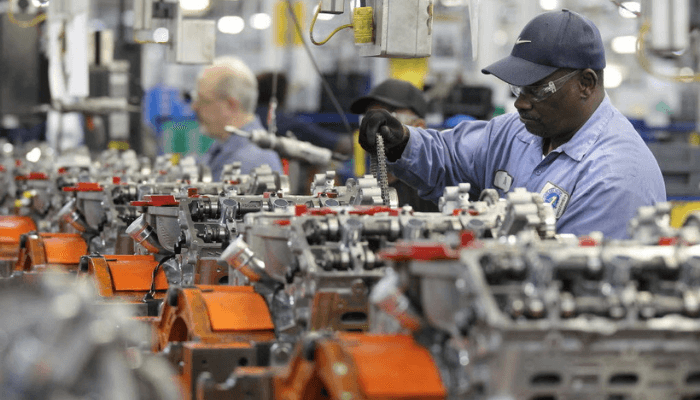Six manufacturing companies have suffered a combined loss of N166.3 billion in their nine months financial results for the period ended September 31, 2023.
The companies listed on the Nigerian Exchange Limited are Nestle Nigeria, Cadbury Nigeria, Dangote Sugar Refinery, Nigerian Breweries, International Breweries and Champion Breweries.
LEADERSHIP reports that rising interest rates and naira devaluation have continued to impact negatively on the operations of the manufacturing sector.
The naira devaluation has led to increased operating costs for multinationals whose major costs, including finance costs, are denominated in foreign currencies.
Meanwhile, the Central Bank of Nigeria (CBN) increased the monetary policy rate, also known as its benchmark interest rate, for the eighth consecutive time in July by 25 basis points to 18.75 percent.
This puts more pressure on the margins of FMCG companies already dealing with double-digit inflation rate and weak purchasing power of cash-strapped consumers.
Speaking on the development, an economist at BancTrust & Co, Omobola Adu said, “We are seeing the result of the naira devaluation which is affecting the financial performance of companies with foreign currency-denominated loans in their books.”
He said coupled with high-cost pressures, which are reducing people’s spending on discretionary items, FMCG firms’ challenges have worsened, saying that the impact of the FX devaluation made it worse.
Nigerian Breweries, in a statement signed by the company secretary/legal director, Uaboi Agbebaku, said a combination of foreign exchange losses due to the devaluation of the naira and higher interest costs resulted in the company’s net loss during the period.
On his part, deputy president of the Lagos Chamber of Commerce and Industry (LCCI), Gabriel Idahosa, stated that “a lot of manufacturers are getting more money from banks at a higher interest because of the rising inflation.
“Manufacturers need more working capital because of the high cost of production in order to meet the same production capacity,” he added.
Former minister of Industry, Trade and Investment, Olusegun Aganga, recently said, “Finance is insufficient and the cost of funds in Nigeria is high, typically between 15 per cent and 20 per cent. Relative to its competitors, Nigeria has a remarkably low domestic credit to GDP ratio and the credit, too expensive due to a combination of factors including high treasury rates, high inflation, infrastructure deficit, inefficiencies, among others.
“Also, available tenures on credit facilities are too short and cannot be used for long-term competitive businesses. The short-term facilities in Nigeria are best suited for trading. There is no access to development finance including risk capital for infrastructure and yet the country needs about $1.5 trillion over ten years to close its current infrastructure deficit.”
He noted that there is also a shortage of dollars for the importation of intermediate inputs and machinery for manufacturers, saying “the cost is higher due to the exchange rate.
“If not well managed this could lead to the collapse of some industries and scarcity of products,” he warned.
According to him, Nigeria must review the legal framework for alternative financing sources such as private equity and venture capital funds, and development funds for infrastructure development.
“The country’s development financial institutions, such as the Development Bank of Nigeria (BOI), Bank of Agriculture and Nigeria Export-Import Bank (NEXIM) are unable to meet the needs of Nigerians because they are grossly undercapitalized,” he added.
Also, president of the Manufacturers’ Association of Nigeria (MAN), Francis Meshioye, called on the federal government to constitute a financial institution, a bank of manufacturing, whose sole mandate will be to offer financial services to operators in the real sector of the economy.
Meshioye stated that Nigeria’s manufacturing sector, as a catalyst for the nation’s economic growth, is rather too big to be without a bank specifically designed to take care of its financial interests and needs.
He insisted: “The government should make some funds available for the manufacturing sector and accessing such funds should not require the guarantee of the commercial banks since they are always reluctant to give such guarantee because they do not find it attractive to their business.
“But if a mechanism that will make it easier to access such funds is put in place, we are willing to work with the government to ensure that it works.”
Meshioye however noted that “while it is true that there is Bank of Industry (BOI), it cannot really serve the interest of the manufacturing sector effectively because the industry is big.
“We, therefore, need a manufacturing bank like we have Bank of Agriculture that will be dedicated solely for manufacturers,” he added.




